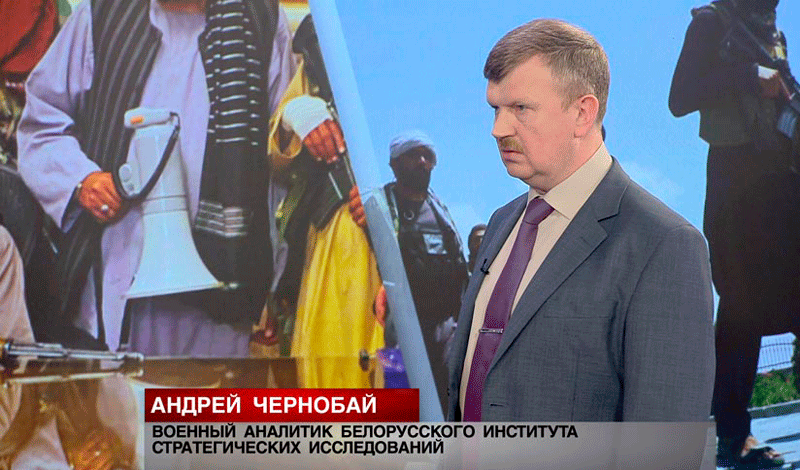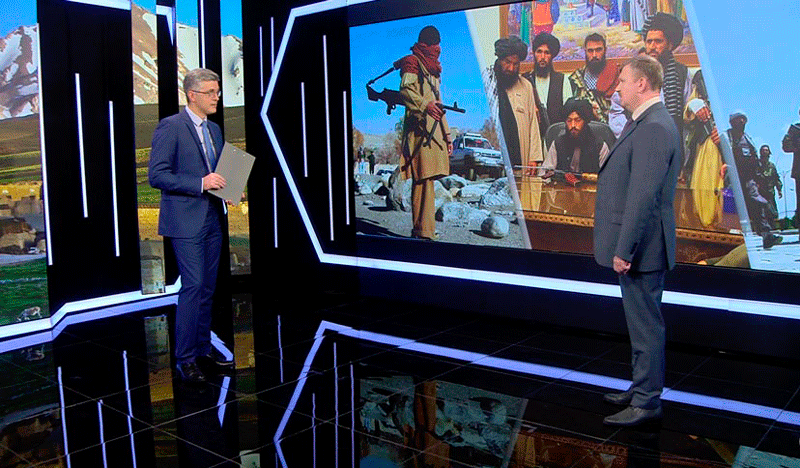News of Belarus. A little bit more about the U.S. Army in Afghanistan and events taking place there.
Andrei Chernobay, Military Analyst at the Belarusian Institute of Strategic Research, is the guest of Minsk Capital Television (CTV) studio.
Evgeny Pobolovets, CTV:
An important question that is the matter of great concern for many people. Biden said in July, "We spent over a trillion dollars over 20 years. We trained and equipped with modern equipment over 300,000 Afghan forces. Only U.S. have poured $83 billion over 20 years into Afghan Army" There was also other support from NATO and other countries. So, why did the Afghan Army has been rendered ineffective? Within just a few days they surrendered large settlements, sometimes without a fight.
Money for Army salaries, keeping it operational, were gone, stolen
Andrey Chernobai, Military Analyst at the Belarusian Institute of Strategic Research:
The Americans tried to create an Army in Afghanistan similar to their own, to European armies, i.e., highly mobile, well-equiped technically, with aircrafts, drones, and electronic warfare systems. Military equipment, weapons, are very expensive, making such astronomical sums. Why did it happen? First, the Afghan army was "overblown", that is, there wasn't really 300 thousand. There were dead souls. Analysts estimated almost half as much. There was a certain cleansing in 2019 that revealed 42 thousand dead souls in the Afghan Army. American money were pouring in. Those were money for Army salaries, keeping it operational, but those money were gone, stolen. High level of corruption both among civil officials and the military elite. There were cases when ordinary soldiers, policemen, who were also on the front line, did not receive a salary for 6-9 months. Of course, this is low morale, reticence to fight to the end. There was a very high turnover, desertion. Not all towns and districts were taken by the Taliban with a fight. Quite often they came to settlements by agreement with the tribal elders.
Evgeny Pobolovets:
How did it look like? Taliban come up to the city and send their envoys?
The elders, to preserve the population of their tribe, surrender it to the Taliban
Andrei Chernobay:
Something like that, yes. They negotiated with the elders. The elders, in order to preserve the population of their tribe, not to destroy the village, of course, surrender to the Taliban. Moreover, they realized they would still have to live under the Taliban and have somehow adapt to this.
Evgeny Pobolovets:
I've got two points of view. The first is big corruption. There was a figure that each third dollar was, roughly speaking, not used for targeted purpose. The second is that the Taliban still outplayed the Afghan authorities with information.
Andrei Chernobay:
The Taliban are not as they used to be 20 years ago. These ones have gadgets, mobile phones, tablets, sit on social networks, go out and spread information. Of course, this also undermined the morale of both the population, Afghan army soldiers, and other security forces.
Evgeny Pobolovets:
What is going to happen to that country now? Your forecasts.
This may be a challenge for the Shanghai Cooperation Organization
Andrei Chernobay:
It is hard to predict what is going to happen to Afghanistan. This is the great concern for everyone, first of all, for the neighbors of Afghanistan. If we take a closer look, almost all countries, except Turkmenistan, are members or observers, like Iran, of the Shanghai Cooperation Organization. This challenge can become a challenge of the SCO. Whether terrorism will go beyond Afghanistan, develop there, threaten the world community or regional security, it will influence the attitude of other countries to the Taliban and the development of the situation as a whole.



